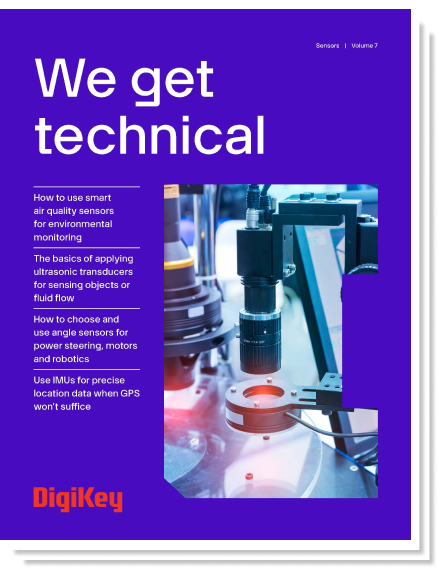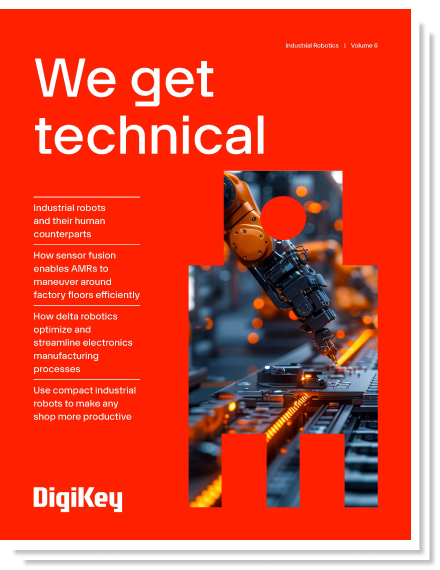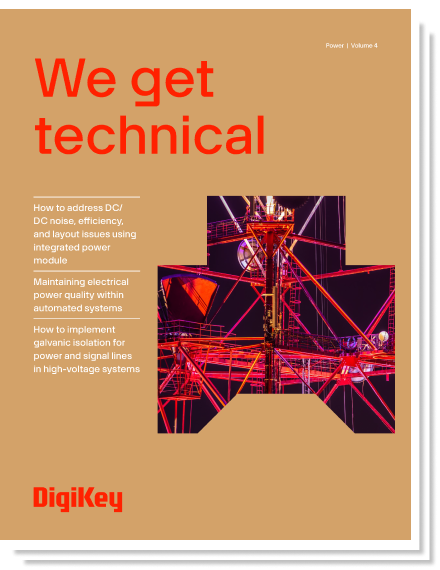 Transportation
eMagazine
Transportation
eMagazine
In our rapidly evolving transportation landscape, groundbreaking technologies are revolutionizing the way we travel. Wide bandgap semiconductors are boosting the efficiency and power of electric vehicles, while LiDAR advancements are bringing the promise of self-driving cars closer to reality by enhancing navigation and safety. These innovations, along with many others, are paving the way for a smarter, safer future on our roads.
 Wireless
eMagazine
Wireless
eMagazine
Wireless communication is a cornerstone of modern technology, revolutionizing how we interact with the world and each other. At its core, wireless technology enables the transmission of information over distances without the need for physical connections like wires or cables. This concept has dramatically transformed communication, fueling the rapid growth of the Internet, media streaming, and much more.
 Sensors
eMagazine
Sensors
eMagazine
Recent advancements in sensor hardware and algorithms are transforming industrial and consumer applications, particularly in automated systems, robotics, and digitalization. These technologies enable miniaturization, ruggedization, and enhanced connectivity, and there's a trend towards integrated sensing solutions that reduce design complexity and costs. In this magazine, we explore 10 specific sensor technologies that enhance scalability, design performance, and smart engineering functions for evolving needs.
 Robotics
eMagazine
Robotics
eMagazine
The role of robotics in manufacturing has evolved over the past 70 years. From welding to collaborative robots, their presence on the factory floor has become commonplace.
 Programmable logic controllers
eMagazine
Programmable logic controllers
eMagazine
Programmable Logic Controllers (PLCs) have become indispensable in the world of industrial automation and control systems. Their versatility allows for complex operations to be managed with precision and reliability.
 Power
eMagazine
Power
eMagazine
As power conversion applications continue to evolve, so do the conversion technologies themselves. Having higher efficiency power conversion can not only increase reliability, it can actually help to future proof your design.
 Advancing the future of automation
eMagazine
Advancing the future of automation
eMagazine
Rising demand and cost of goods continue to put pressure on manufacturers. To meet consumer demands, they need to think differently.
 IoT
eMagazine
IoT
eMagazine
"The Internet of Things (IoT) has emerged as a transformative and revolutionary concept, reshaping the way we interact with technology and the world around us."
 Capacitors
eBook
Capacitors
eBook
An introduction to selecting capacitors, also known as caps or condensers, which are electronic components that store energy in an accumulated electric field between two parallel, conductive plates separated by an insulator. Capacitors oppose changes in voltage potential in a circuit.
 Resistors
eBook
Resistors
eBook
An introduction to selecting fixed-value resistors which are passive electronic components that limit or resist current flow in a circuit. Resistors drop proportional voltage across its terminals and produce heat in response to current flow through the device.
We are open to suggestions!
Have an idea for a magazine topic? Have feedback to make your experience better? Let us know.







 中国
中国